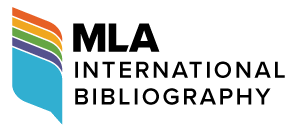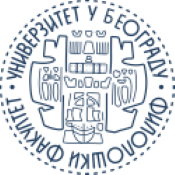Precursors and Their Borges: Premodern Sculpting in Modern Time
DOI:
https://doi.org/10.18485/beoiber.2024.8.2.6Apstrakt
Borges is boundless: his texts leave no uncrossed boundaries between distant and close, early and late, medieval and modern. However, such boundlessness is by no means a result of his supposedly morally weightless playfulness, which many postmodernists were glad to see as a worthy harbinger. As I intend to show in this essay, Borges’s main intellectual, literary, and ethical strategy is what might be called time condensation: using his astonishing erudition, Borges shows that our modern and secularized world, where each generation perceives itself as new, unique and unprecedented, is composed of countless strata created by the collective experience of past generations. Borges’s enterprise is consistent with the intellectual and artistic projects of modernism (including the works of Virginia Woolf, Marcel Proust, James Joyce, and Franz Kafka) as it strives to provide an alternative to the linear, irreversible, and secularised time of the modern world; an alternative constructed as a matter of interpretive choice and at the same time a moral and existential choice: to recognize or deny the ethical dimension of time. Jewish ideas played an important, though not the only, role in shaping Borges’s vision of condensed time, as did, more generally, his lifelong sympathetic observation of the unique historical destiny of the Jewish people. Hence, I argue, the formalist tendency in recent scholarship to ‘translate’ Borges’s Jewish theme into a dehistoricized and essentialized language of literary tropes, a sophisticated mind game that bears no relation to actual (Jewish) history, often comes at the cost of turning a blind eye to the ethical dimension of Borges’s intellectual project.Reference
Aizenberg, Edna. «‘I, a Jew’: Borges, Nazism, and the Shoah.» The Jewish Quarterly Review 104.3 (2014): 339-353. Print.
—. «Postmodern or Post-Auschwitz: Borges and the Limits of Representation.» Variaciones Borges 3 (1997): 141-152. Print.
—. The Aleph Weaver: Biblical, Kabbalistic and Judaic Elements in Borges. Potomac: Scripta Humanistica, 1984. Print.
—. «Emma Zunz: A Kabbalistic Heroine in Borges’s Fiction.» Studies in American Jewish Literature 3 (1983): 223-235. Print.
Alazraki, Jaime. Borges and the Kabbalah: And Other Essays on His Fiction and Poetry. Cambridge: Cambridge University Press, 1988. Print.
Almeida, Ivan. «Borges, Dante et la modification du passé». Variaciones Borges 4 (1997): 74-99. Impression.
Balderston, Daniel. «The Universe in a Nutshell: The Long Sentence in Borges’s ‘El Aleph’.» Variaciones Borges 33 (2012): 53-72. Print.
Baumgartner, Frederic J. Behind Locked Doors: A History of the Papal Elections. London: Palgrave Macmillan, 2003. Print.
Bell-Villada, Gene H. Borges and His Fiction: A Guide to His Mind and Art. 2nd ed. Austin: University of Texas Press, 1999. Print.
Bloom, Harold. Kabbalah and Criticism. New York: Continuum, 1975. Print.
Borges, Jorge Luis. «Pierre Menard, autor del Quijote.» Sur 56 (1939), 7-16. Impreso.
—. «Israel.» Sur 254 (1958), 1-2. Impreso.
—. Other Inquisitions 1937-1952. 2nd ed. Translated by Ruth L. C Simms. Austin: University of Texas Press, 1975. Print.
—. Borges, oral. Buenos Aires: Emecé Editores, 1979a. Impreso.
—. «Jorge Luis Borges: Homenaje a Victoria Ocampo». [Radio broadcast] UNESCO Radio, 5 May 1979b. Web. 18 Nov. 2024.
—. Seven Nights. Translated by Eliot Weinberger. New York: New Directions Books, 1984. Print.
—. Collected Fictions. Translated by Andrew Hurley. London: Penguin Books, 1998. Print.
—. Selected Non-Fictions. Translated by Esther Allen, Suzanne Jill Levine, and Eliot Weinberger. London: Penguin Books, 1999. Print.
Călinescu, Matei. Five Faces of Modernity. Durham: Duke University Press, 1987. Print.
Cervantes Saavedra, Miguel de. Don Quixote. Translated by John Rutherford. London: Penguin Books, 2000. Print.
de Man, Paul. Critical Writings, 1953-1978. Minneapolis: University of Minnesota Press, 1989. Print.
Deppner, Corinna. «Borges and Judaism.» Robin Fiddian (ed.). Jorge Luis Borges in Context. Cambridge: Cambridge University Press, 2020. 204-210. Print.
Fishburn, Evelyn. «Jewish, Christian, and Gnostic Themes.» Edwin Williamson (ed.). The Cambridge Companion to Jorge Luis Borges. Cambridge: Cambridge University Press, 2013. 56-67. Print.
—. «Reflections on the Jewish Imaginary in the Fictions of Borges.» Variaciones Borges 5 (1998): 145-156. Print.
—. «Borges, Cabbala and ‘Creative Misreading’.» Ibero-amerikanisches Archiv 14.4 (1988): 401-418. Print.
Flynn, Annette U. The Quest for God in the Work of Borges. New York and London: Bloomsbury, 2009. Print.
Freedman, Harry, and Simon Maurice (eds.). Midrash Rabbah. Numbers II. Translated by Judah J. Slotki. London: Soncino Press, 1939. Print.
Graff Zivin, Erin. The Wandering Signifier: Rhetoric of Jewishness in the Latin American Imaginary. Durham: Duke University Press, 2008. Print.
Hammerschlag, Sarah. «Troping the Jew: Jean François Lyotard’s Heidegger and ‘the jews’.» Jewish Studies Quarterly 12:4 (2005): 371-398. Print.
Hernaiz, Sebastián. «Borges, reescritor. En torno a ‘El escritor argentino y la tradición’ y la intriga de sus contextos de publicación». Estudios filológicos 63 (2019): 81-98. Impreso.
Johnson, David E. Kant’s Dog. On Borges, Philosophy, and the Time of Translation. New York: State University of New York Press, 2012. Print.
Kristal, Efraín. «Jorge Luis Borges and Philosophy.» Jeffrey R. Di Leo (ed.). Philosophy as World Literature. New York and London: Bloomsbury, 2020. 247-260. Print.
—. «Jorge Luis Borges’s Literary Response to Anti-Semitism and the Holocaust.» The Jewish Quarterly Review 104:3 (2014): 354-361. Print.
La Santa Biblia: Reina-Valera 1960. New York: American Bible Society, 1964. Impreso.
Maselli, Matteo. «Le vie oblique dell’allusione: Borges, Dante e il dialogo sull’eterno». Variaciones Borges 45 (2018): 61-78. Impresso.
Núñez-Faraco, Humberto. «In Search of the Aleph: Memory, Truth, and Falsehood in Borges’s Poetics.» The Modern Language Review 92.3 (1997): 613-629. Print.
Ortega, Julio. «El Aleph y el lenguaje epifánico». Hispanic Review 67.4 (1999): 453-466. Impreso.
Pérez, Rolando. «Borges and Bruno Schulz on the Infinite Book of the Kabbalah.» Confluencia 31.2 (2016): 41-56. Print.
Rosman, Silvia. «Politics of the Name: On Borges’s ‘El Aleph’.» Variaciones Borges 14 (2002): 7-21. Print.
Scholem, Gershom (ed.). Zohar: The Book of Splendor. Basic Readings from the Kabbalah. Translated by Maurice Simon, Harry Sperling, and Paul Levertoff. New York: Schocken Books, 1949. Print.
Shaw, Donald L. «Borges, Ethics and Evil.» Variaciones Borges 34 (2012): 59-66. Print.
Sosnowski, Saúl. «‘The God’s Script’ – A Kabbalistic Quest.» Modern Fiction Studies 19.3 (1973): 381-394. Print.
—. «El Verbo cabalístico en la obra de Borges». Hispamérica 3.9 (1975): 35-54. Impreso.
—. Borges y la Cábala: La búsqueda del Verbo. 2nd ed. Buenos Aires: Ed. Modesto Rimba, 2020. Impreso.
Stavans, Ilan. «Emma Zunz: The Jewish Theodicy of Jorge Luis Borges.» Modern Fiction Studies 32.3 (1986): 469-475. Print.
—. «Borges’s Zionist Bent: Newly Translated Poems.» The Forward, 24 December 2008. Web. 18 Nov. 2024.
—. Borges, the Jew. New York: State University of New York Press, 2016. Print.
Steiner, George. After Babel: Aspects of Language and Translation. Oxford: Oxford University Press, 1975. Print.
The Bible: New International Version. Palmer Lake: Biblica, 2011. Print.
Thiem, Jon. «Borges, Dante, and the Poetics of Total Vision.» Comparative Literature 40.2 (1988): 97-121. Print.
Ungureanu, Delia. «The Revolutionary Force of the Periphery: The Levant, Nostalgia, and World Literature.» Dibur 9 (2020): 55-71. Print.
Vigée, Claude. «Borges devant la Kabbale juive. De l’écriture du dieu au silence de l’Aleph». Revue de littérature comparée 320.4 (2006): 397-413. Impression.
Williamson, Edwin. Borges, a Life. New York: Viking, 2004. Print.
Wolfson, Elliot R. «In the Mirror of the Dream: Borges and the Poetics of Kabbalah.» The Jewish Quarterly Review 104.3 (2014): 362-379. Print.
##submission.downloads##
Objavljeno
Kako citirati
Broj časopisa
Sekcija
Licenca
Sva prava zadržana (c) 2024 Michael Makarovsky

Ovaj rad je pod Creative Commons Autorstvo-Deli pod istim uslovima 4.0 Internacionalna licenca.
Autori koji objavljuju u ovom časopisu pristaju na sledeće uslove:
- Autori zadržavaju autorska prava i pružaju časopisu pravo prvog objavljivanja rada i licenciraju ga pod okriljem Creative Commons Attribution-ShareAlike 4.0 International License koja omogućuje drugima da dele rad uz uslov navođenja autorstva i izvornog objavljivanja u ovom časopisu.
- Autori mogu da izrade zasebne, ugovorne aranžmane za ne-ekskluzivnu distribuciju rada objavljenog u časopisu (npr. postavljanje u institucionalni repozitorij ili objavljivanje u knjizi), uz navođenje da je rad izvorno objavljen u ovom časopisu.
- Autorima je dozvoljeno i podstiču se da postave objavljeni rad on-line (npr. u institucionalnom repozitoriju ili na svojim mrežnim stranicama) pre i tokom postupka prijave, s obzirom na to da takav postupak može voditi produktivnoj razmeni ideja, te ranijoj i većoj citiranosti objavljenog rada (up. The Effect of Open Access).













